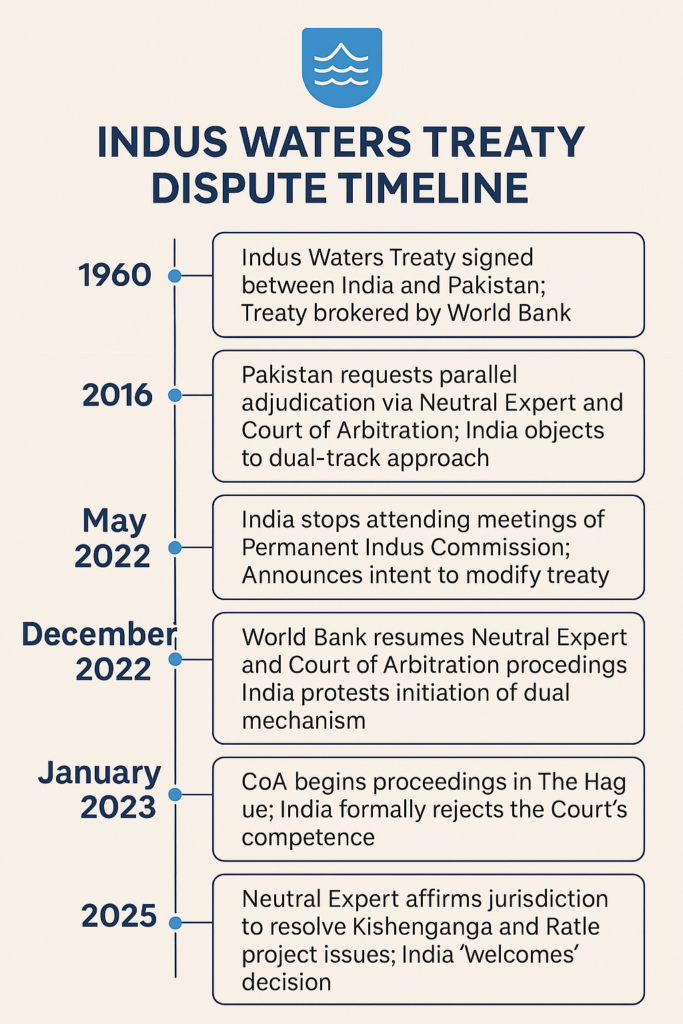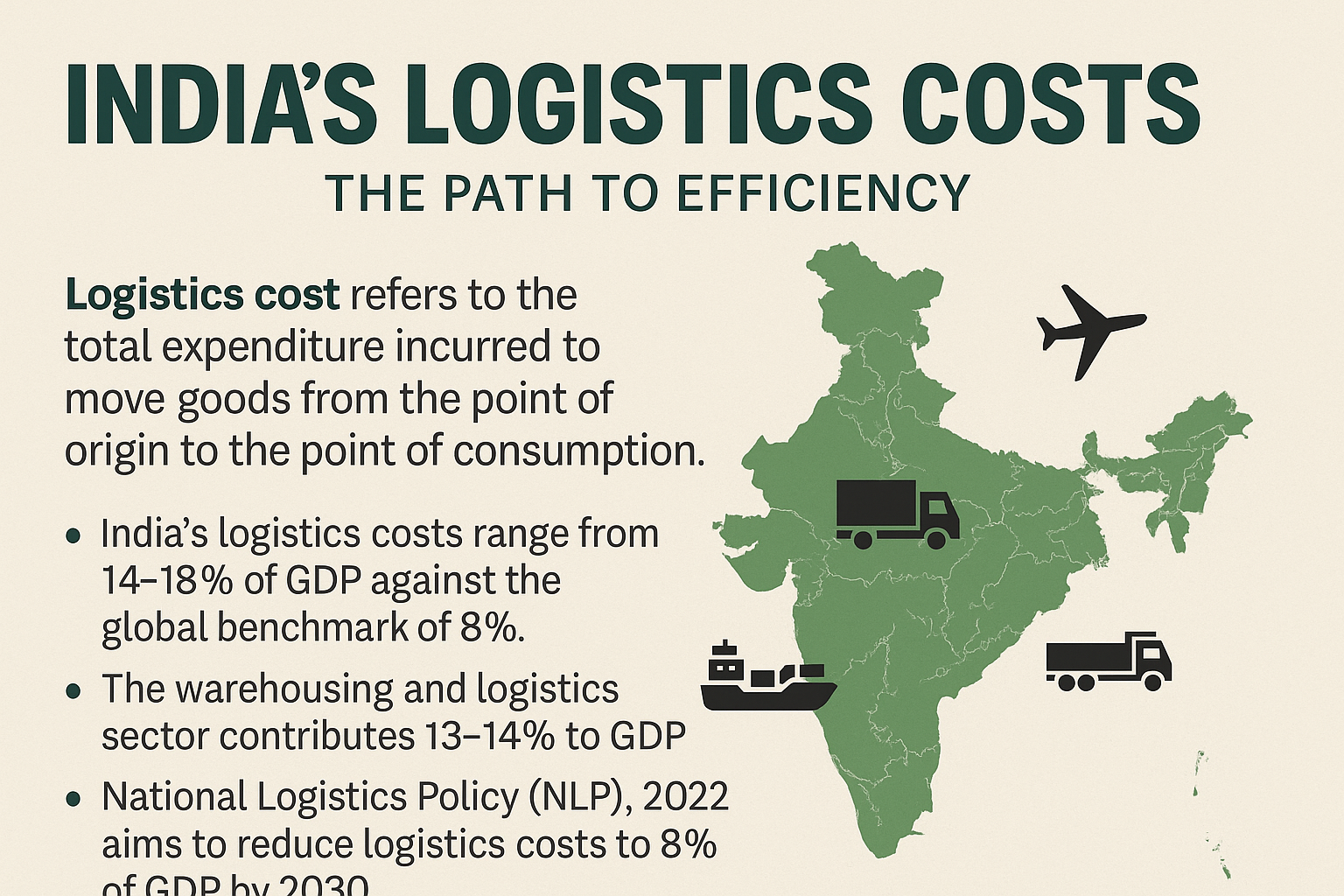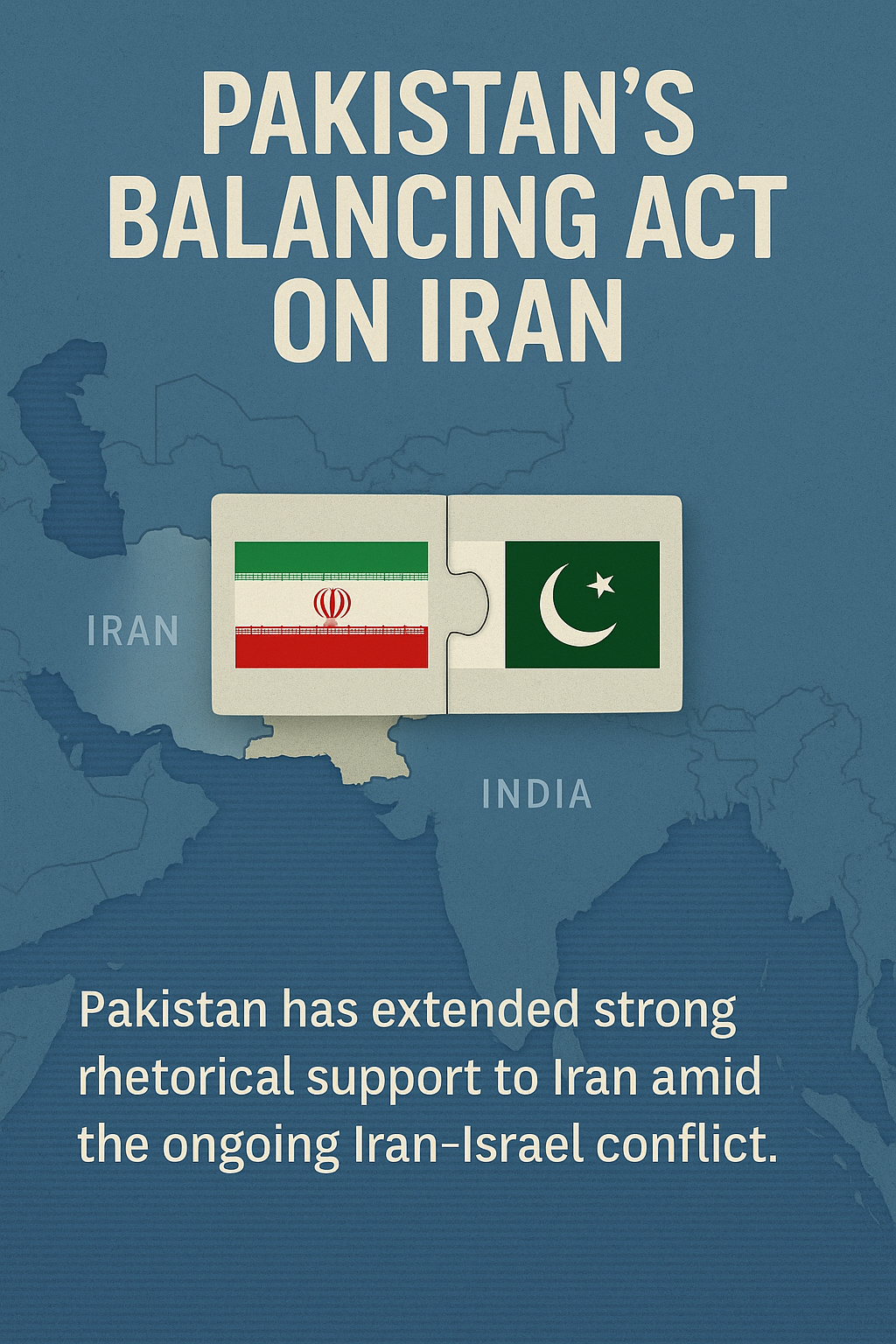157.
🌊 Water, Treaties & Tensions: Navigating the Indus Waters

Indus Waters Treaty Dispute: Neutral Expert Asserts Jurisdiction Amid Ongoing Tensions
🗓️ What Is the Indus Waters Treaty?
The Indus Waters Treaty (IWT) was signed on September 19, 1960, between India and Pakistan, under the mediation of the World Bank. It governs the allocation and management of six Himalayan rivers and is considered a landmark in transboundary water-sharing agreements.
🛶 Key Provisions of the Treaty
- Eastern Rivers: Sutlej, Beas, Ravi — allocated to India
- Western Rivers: Indus, Jhelum, Chenab — primarily allocated to Pakistan, with India allowed limited non-consumptive use
- Pakistan gets ~80% of total water flow, India ~20%
- Establishes a Permanent Indus Commission (PIC) to ensure communication and cooperation
⚖️ Dispute Resolution Mechanism (3-Step Approach)
1️⃣ Permanent Indus Commission (PIC) — First level of resolution
2️⃣ Neutral Expert (NE) — Appointed by the World Bank if technical disagreements persist
3️⃣ Court of Arbitration (CoA) — For unresolved legal disputes
🛑 India maintains that these steps must be followed sequentially. Pakistan, however, sought both NE and CoA in parallel in 2016.
⚡Hydroelectric Projects Under Scrutiny
- Kishenganga Project (330 MW) – On Jhelum tributary; Pakistan fears reduced downstream flow
- Ratle Project (850 MW) – On the Chenab River; also contested by Pakistan
- Both projects are crucial for India’s energy needs in Jammu & Kashmir
🇵🇰 Pakistan’s Position
- In 2016, Pakistan approached both the Court of Arbitration and Neutral Expert simultaneously
- India rejected this dual-track approach, calling it a treaty violation
- In 2022, the World Bank agreed to resume both mechanisms — a move India strongly protested
🇮🇳 India’s Response
- Withdrew from PIC meetings in May 2022
- Requested treaty renegotiation via four formal letters to Pakistan in 2023 — no formal reply received
- Continues to oppose the dual-track mechanism
📜 NE’s Clarification & Recent Decision
The Neutral Expert recently affirmed his jurisdiction to hear and resolve the technical disputes concerning:
- Design features of Kishenganga and Ratle projects
- Clarified that issues referred to him cannot be re-litigated in the Court of Arbitration
🇮🇳 India has welcomed this clarification, marking it a step forward in upholding the treaty’s procedural integrity
💧 Broader Implications
- The IWT, while resilient for decades, is now strained by geopolitical tensions
- Water-sharing remains a critical issue for millions in both nations
- Effective treaty mechanisms, mutual trust, and regional diplomacy are key to long-term peace















